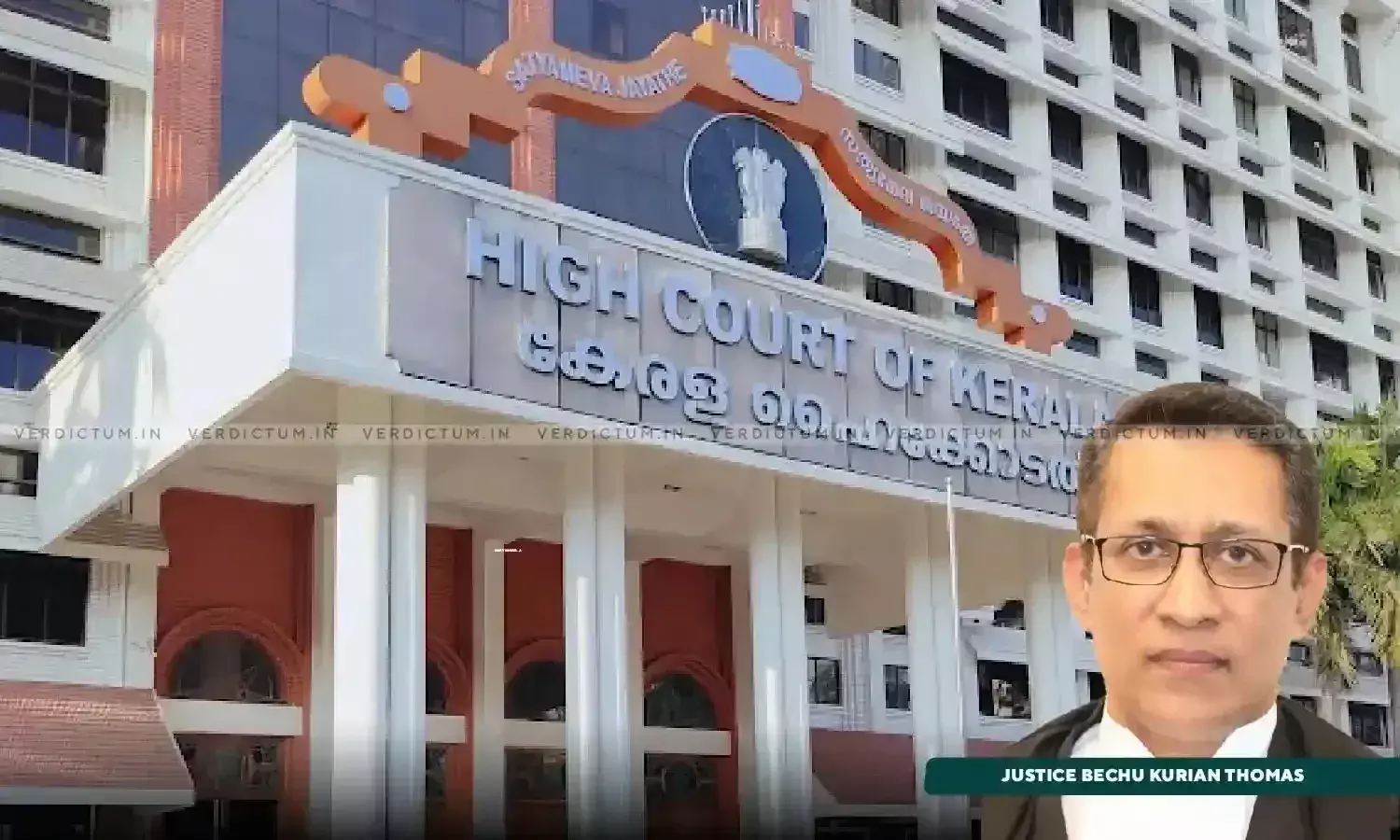Investigating Officer Must Have Free Hand In Sexual Harassment Cases Unless Allegations Are Wholly False: Kerala High Court Denies Anticipatory Bail To Accused
The High Court held that in cases involving grave allegations of sexual harassment, anticipatory bail cannot be granted to the accused, as doing so would risk curtailing the investigation and undermining the complainant’s rights.

The Kerala High Court has held that when allegations of sexual harassment are not found to be wholly false, the investigating officer must be given a free hand to carry the investigation to its logical conclusion. In such cases, the High Court observed, protection through anticipatory bail for the principal accused cannot be granted, as it may weaken the investigative process.
The Court was hearing an anticipatory bail application filed by multiple accused in a case registered at a police station in Kerala in alleged offences under the Sexual Harassment of Women at Workplace (Prevention, Prohibition and Redressal) Act, 2013.
A Bench comprising Justice Bechu Kurian Thomas observed that “In matters involving grave allegations of sexual harassment, when the Court is not convinced of the allegations being wholly false, it is always appropriate that the investigating officer be given a free hand to take the investigation to its logical conclusion rather than in curtailing it.”
Senior Advocate P. Vijayabhanu appeared for the petitioners. Advocate Anand Kalyanakrishnan with Public Prosecutor Sreeja V. appeared for the respondents.
Background
The first petitioner, a businessman, and the other accused, who were his employees and director, were alleged to have committed offences including sexual exploitation, threats, and intimidation, respectively. The complainant, who worked as Executive Assistant to the first petitioner, alleged that she was subjected to repeated sexual harassment and coercion during her employment.
Despite submitting resignations and complaints to the Internal Complaints Committee, she contended that no action was taken. She further alleged that false cases of extortion were registered against her and her husband after they attempted to raise complaints.
The petitioners contended that they were victims of a “honey trap” and alleged that the complainant and her husband demanded ₹30 crores. It was argued that the present case was filed as retaliation after they had lodged a complaint of extortion.
Court’s Observations
The Kerala High Court noted procedural lapses in the investigation, including the delay in recording the complainant’s statement under Section 183 of the BNSS and omission of relevant provisions in the FIR despite allegations of attempted rape. It also took note of the seizure of the complainant’s devices without proper recording, observing that such irregularities raised legitimate concerns of tampering.
On the issue of granting anticipatory bail, the Court held that pre-arrest bail in serious cases of sexual harassment may compromise the collection of evidence.
Relying on the precedent laid down in Krishna Mohan Reddy P. v. State of Andhra Pradesh in which the Supreme Court had held that “success in interrogation will elude, if the suspected person knows that he is well protected and insulated by a prior bail order during the time he is interrogated”, the Kerala High Court held that the accused petitioner cannot be protected with an order of pre-arrest bail.
The Bench further reiterated the legal framework under the Sexual Harassment of Women at Workplace (Prevention, Prohibition and Redressal) Act, 2013, emphasising that protection against sexual harassment and the right to work with dignity are recognised human rights.
The High Court concluded that “there are materials to suggest the allegations to be prima facie justified, protecting him with an order of anticipatory bail will render the investigation ineffective. Hence anticipatory bail to the first petitioner has to be declined.”
Conclusion
In light of the seriousness of the allegations, the Court declined anticipatory bail to the first petitioner. However, it allowed anticipatory bail to the co-accused, subject to strict conditions, including cooperation with the investigation, non-interference with witnesses, and non-repetition of similar offences.
Cause Title: Venu Gopalakrishnan Vs The State of Kerala (Neutral Citation: 2025:KER:67360)
Appearances
Petitioner: Senior Advocate P. Vijayabhanu, Advocates Thomas J. Anakkallunkal, P. Sanjay, Anupa Anna Jose Kandoth and others.
Respondents: Public Prosecutor Sreeja V, Advocates Dheeraj Rajan, Anand Kalyanakirshnan and others.


